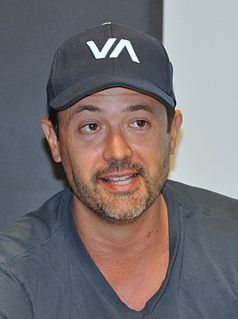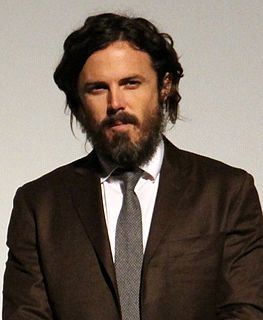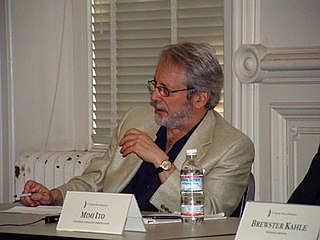A Quote by Susan Orlean
Writers like to write, and writing in different forms - short, long, bite-sized, done on the fly, done with painstaking attention - all interest me.
Related Quotes
I prefer reading novels. Short stories are too much like daggers. And now that I'm done with my collection I'm more interested in different forms of writing and other kinds of narrative art. I'm working on a screenplay. But when I was working on Eileen, I definitely felt like I was taking a piss. Like, here I am, typing on my computer, writing the "novel." It wasn't that it was insincere, but there was a kind of farcical feeling I had when I was writing.
Writing is writing to me. I'm incapable of saying no to any writing job, so I've done everything - historical fiction, myths, fairy tales, anything that anybody expresses any interest in me writing, I'll write. It's the same reason I used to read as a child: I like going somewhere else and being someone else.
For me writing is a long, hard, painful process, but it is addictive, a pleasure that I seek out actively. My advice to young writers is this: Read a lot. Read to find out what past writers have done. Then write about what you know. Write about your school, your class, about your teachers, your family. That's what I did. Each writer must find his or her own kind of voice. Finally, you have to keep on writing.
I love short stories. They're like small imploding universes. They are very tightly bound and controlled. I'd been wanting to write one for ages but just got tangled up in novels. The novel is the same in the sense that it is also a universe, but it explodes outwards with all that shrapnel going in several different directions. I don't see too much difference in the forms except for the fact that writing short stories is like sprinting rather than long-distance running.
Somebody said that writers are like otters... Otters, if they do a trick and you give them a fish, the next time they'll do a better trick or a different trick because they'd already done that one. And writers tend to be otters. Most of us get pretty bored doing the same trick. We've done it, so let's do something different.
It's funny - for a long time, I didn't know I was writing a book. I was writing stories. For me, each story took so long and took so much out of me, that when I finished it, I was like, Oh my gosh, I feel like I've poured everything from myself into this, and then I'd get depressed for a week. And then once I was ready to write a new story, I would want to write about something that was completely different, so I would search for a totally different character with a different set of circumstances.
Young writers should be encouraged to write, and discouraged from thinking they are writers. If they arrive at college with literary ambitions, they should be told that everything they have done since their first childhood poems, printed in the school paper, has been preparation for entering a long, long apprenticeship.
Writers are egotists. All artists are. They can’t be altruists and get their work done. And writers love to whine about the Solitude of the Author’s Life, and lock themselves into cork-lined rooms or droop around in bars in order to whine better. But although most writing is done in solitude, I believe that it is done, like all the arts, for an audience. That is to say, with an audience. All the arts are performance arts, only some of them are sneakier about it than others.
I was influenced by autobiographical writers like Henry Miller, and I had actually done some autobiographical prose. But I just thought that comics were like virgin territory. There was so much to be done. It excited me. I couldn't draw very well. I could write scripts and storyboard style using stick figures and balloons and captions.
I'm one of those writers who started off writing novels and came to writing short stories later, partly because I didn't have the right ideas, partly because I think that short stories are more difficult. I think learning to write short stories also made me attracted toward a paring down of the novel form.
































